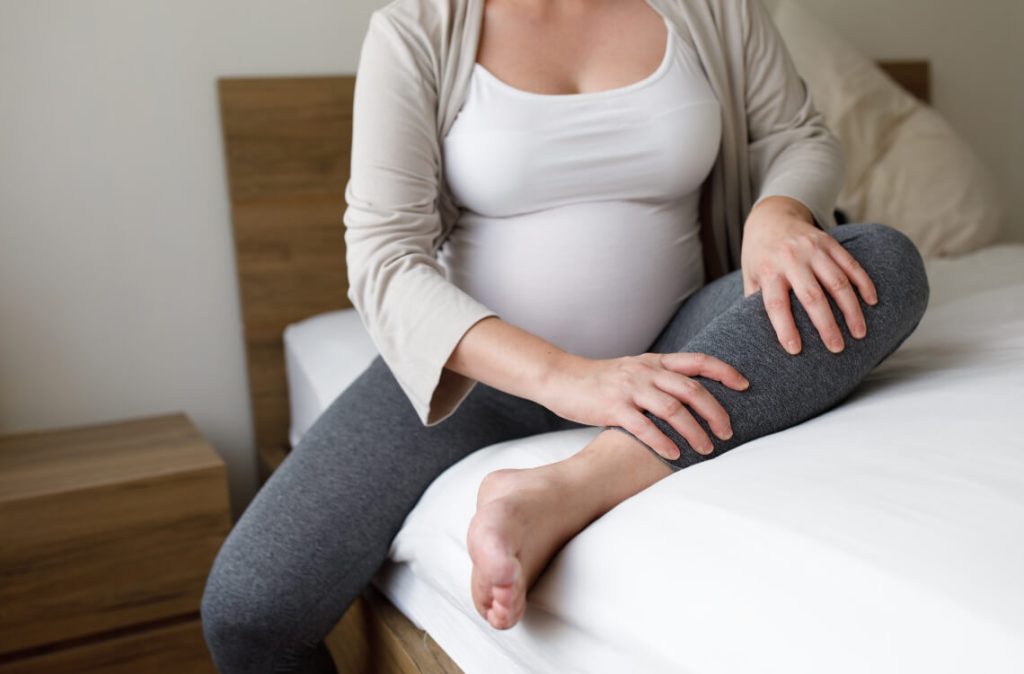Arthritis is the medical term for swelling or joint inflammation. It describes more than 100 ailments that have an impact on connective tissues, joints, and surrounding tissues.
Arthritis and associated disorders come in more than 100 different varieties. Osteoarthritis (OA), rheumatoid arthritis (RA), psoriatic arthritis (PsA), fibromyalgia, and gout are the most prevalent forms.
It is a widespread disorder that primarily affects older persons, as many are aware. However, it can happen at any age, and while it can affect either gender, it is more common in women, even those who are pregnant.
In the first nine months after the first pregnancy, particularly, there is an increased incidence of rheumatoid arthritis, according to studies.
What happens, then, if a pregnant woman has rheumatoid arthritis? What would occur, and what can they anticipate? Let’s explore this subject in more detail below.
What is Rheumatoid Arthritis All About?
The Centres for Disease Control and Prevention (CDC) state that rheumatoid arthritis, also known as RA, is an autoimmune and inflammatory condition. This means that the immune system unintentionally attacks healthy cells in your body, leading to inflammation (painful swelling) in the affected body parts.
Rheumatoid arthritis (RA) primarily targets the joints, frequently several joints at once. The hands, wrists, and knees are frequently affected by RA. When RA affects a joint, the joint’s lining becomes inflamed, harming the joint tissue.
Unsteadiness (loss of balance), chronic or long-lasting discomfort, and deformity can all result from this tissue damage (misshapenness). In addition to these tissues, RA can harm other organs like the heart, lungs, and eyes as well as other tissues all over the body.
Rheumatoid Arthritis During Pregnancy
Women with rheumatoid arthritis frequently experience changes in their symptoms during pregnancy, according to Medical News Today. Up to 90% of RA patients may experience postpartum flares, which often occur in the first three months and are more frequent after the first pregnancy.
Additionally, one study discovered that 17% of pregnancies were lost by women with RA. The researchers point out that this rate is similar to the population’s average, which is 11%–22%.
There is a chance that the disease’s activity will decrease during pregnancy given that 50% to 60% of pregnant women with RA report improved signs and symptoms.
In most cases, the first trimester is when the illness activity begins to decline, and it continues through delivery. Unfortunately, it is impossible to foresee which patients will improve and which may flare up during pregnancy.
Furthermore, it can occasionally be challenging to differentiate between common pregnancy discomforts and the signs of rheumatoid arthritis. The following pregnancy discomforts are comparable to those associated with RA:
- being generally exhausted
- joint soreness, particularly in the low back
- the hands, feet, or ankles swelling
- shortness of breath
- one or both hands may feel numb or painful
Despite the possibility symptoms overlap, pregnant women with RA may be more susceptible to the following complications:
-
Preeclampsia: A Taiwanese study found that preeclampsia is more common in women with RA. Preeclampsia is a pregnancy condition that results in elevated blood pressure and an abundance of protein in the urine. It might also happen following childbirth.
-
Premature delivery: Some studies suggest that pregnant women with RA may have a higher risk of having an early delivery than those without the condition. A study of 440 RA-pregnant women found that those with more severe symptoms were more likely to deliver their babies early.
-
Low birth weight: In a 2009 study, it was discovered that women with more severe RA were more likely to give birth to underweight babies.
(Source: Medical News Today)
Additional Information Worth Knowing
Rheumatoid arthritis does not appear to be dangerous to an unborn child, even when present during pregnancy. While some may have a slightly elevated risk of miscarriage or low-birth-weight infants, the majority of women with RA experience successful pregnancies without any issues.
However, it’s important to be cautious when taking arthritis drugs while pregnant. Even though many appear to be safe to continue taking, some drugs can result in miscarriage or birth defects. As Arthritis-Health points out, these include:
- Chlorambucil (Leukeran)
- Cyclophosphamide (Cytoxan)
- Leflunomide (Arava)
- Methotrexate (Rheumatrex)
- Warfarin (Coumadin)
Furthermore, some drugs, such as corticosteroids, may need to be altered or avoided while pregnant, while others, such as NSAIDs, may need to be avoided later in the pregnancy. Those who are already on arthritis medication should consult their doctor about medication adjustments before planning a pregnancy or during the early stages of pregnancy.
Finally, a quick recommendation for pregnant mothers with RA. Since the condition varies from one person to another, the most important thing is to monitor for symptoms and discuss the situation with your gynaecologist to properly manage the pregnancy. Take good care, mums!
For more insightful stories and fun recipes, stay tuned to Motherhood Story!
